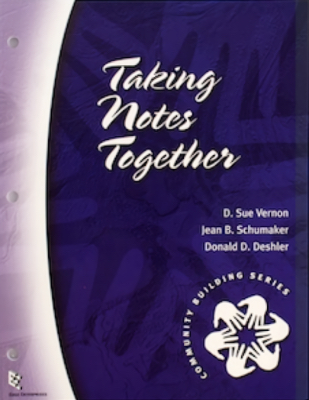Community Building: Taking Notes Together

The Taking Notes Together program provides a framework for teachers to use to deliver information when they want students to take notes. Students review the learning community concepts from the Talking Together program, then learn how to record information quickly and succinctly during lectures, reading assignments, and videos.
Nearly 380 students--including 30 percent who were minority students and 34 percent students with exceptionalities--participated in research studies. When taking notes on a reading passage, students in the experimental group increased their scores from 21 percent on the pretest to 78 percent on the posttest. Students in the comparison group scored 18 percent on the pretest and 19 percent on the posttest. Students with exceptionalities in the experimental group scored 17 percent on the pretest and 73 percent on the posttest. Students with exceptionalities in the comparison group scored 15 percent on the pretest and 16 percent on the posttest.
---
This product is available through Edge Enterprises, Inc.
Please note that professional development, coaching, and infrastructure support are essential components to effective implementation of SIM instructional tools and interventions. It is highly recommended that you work with a SIM professional developer. See the SIM Event list for sessions or email simpd@ku.edu to learn more.
---
Author(s): D. Sue Vernon, Jean B. Schumaker, and Donald D. Deshler
Publication Info: Edge Enterprises, Inc.
Resources: